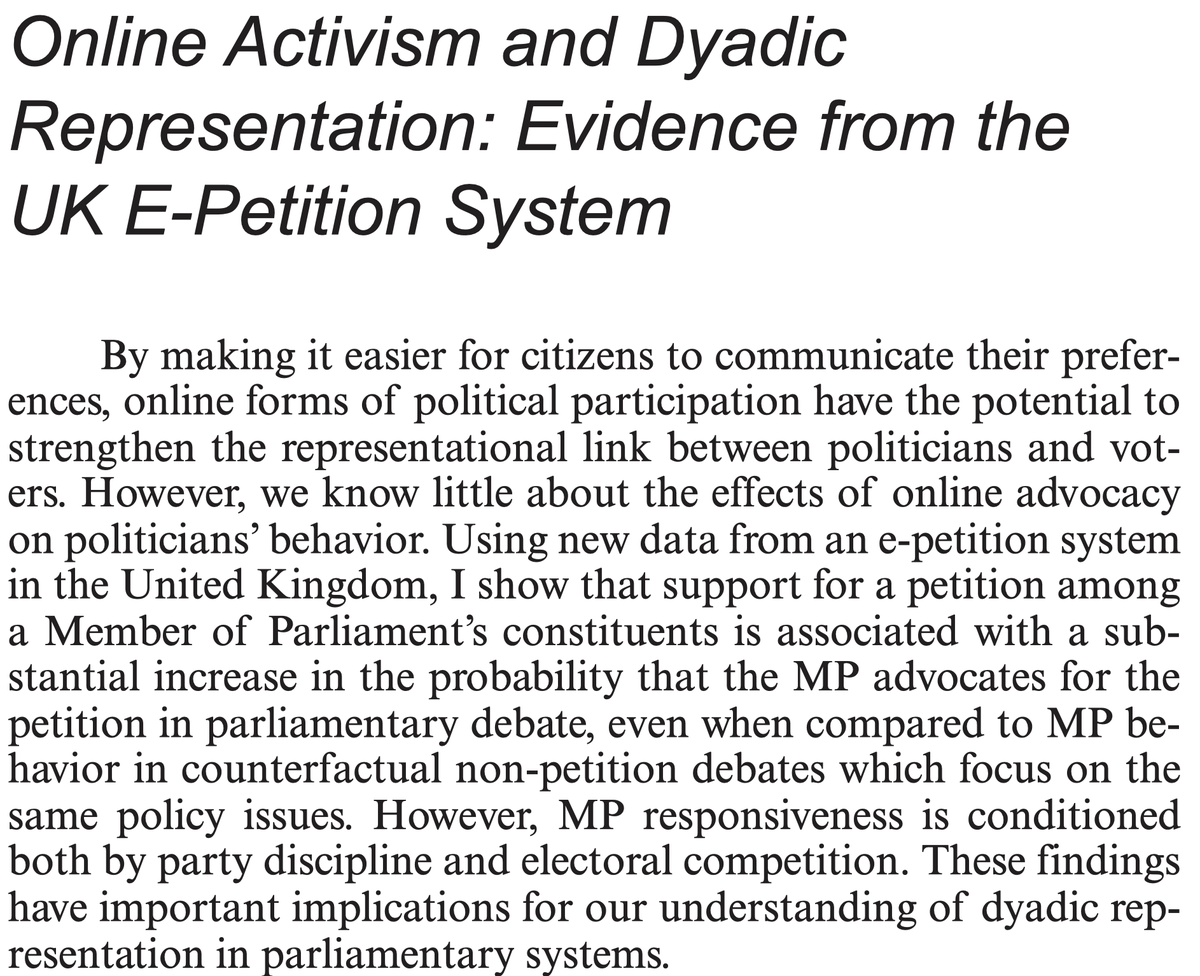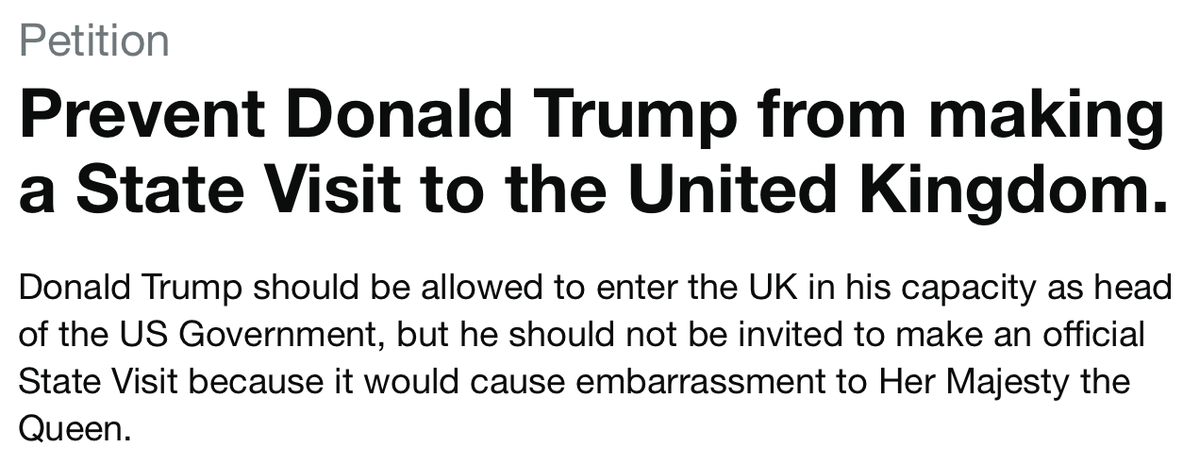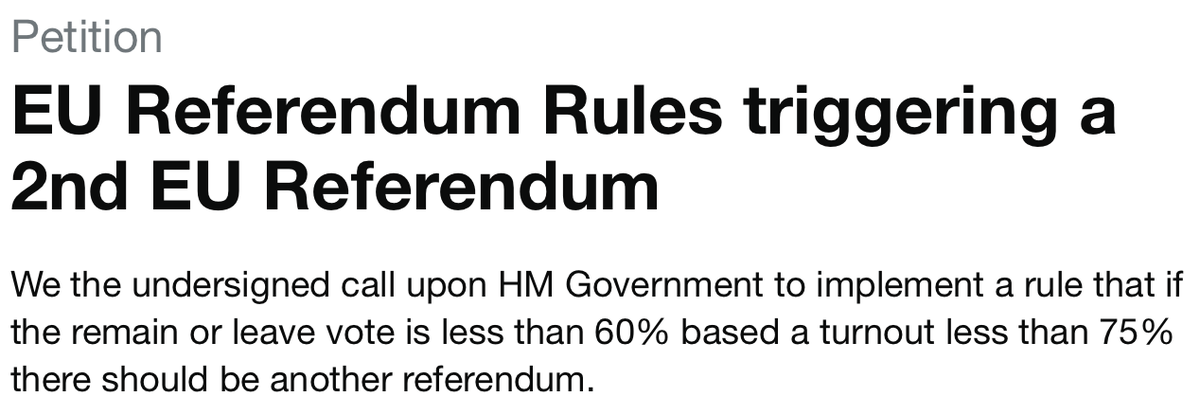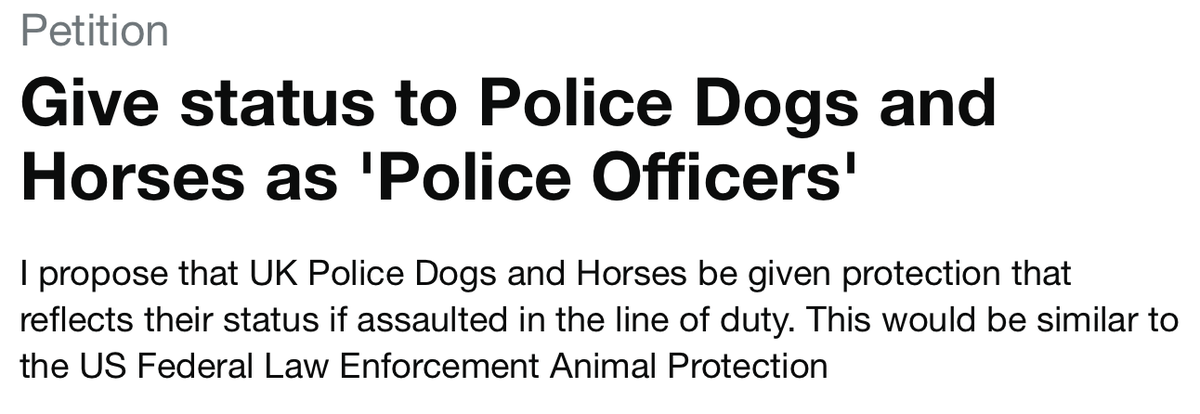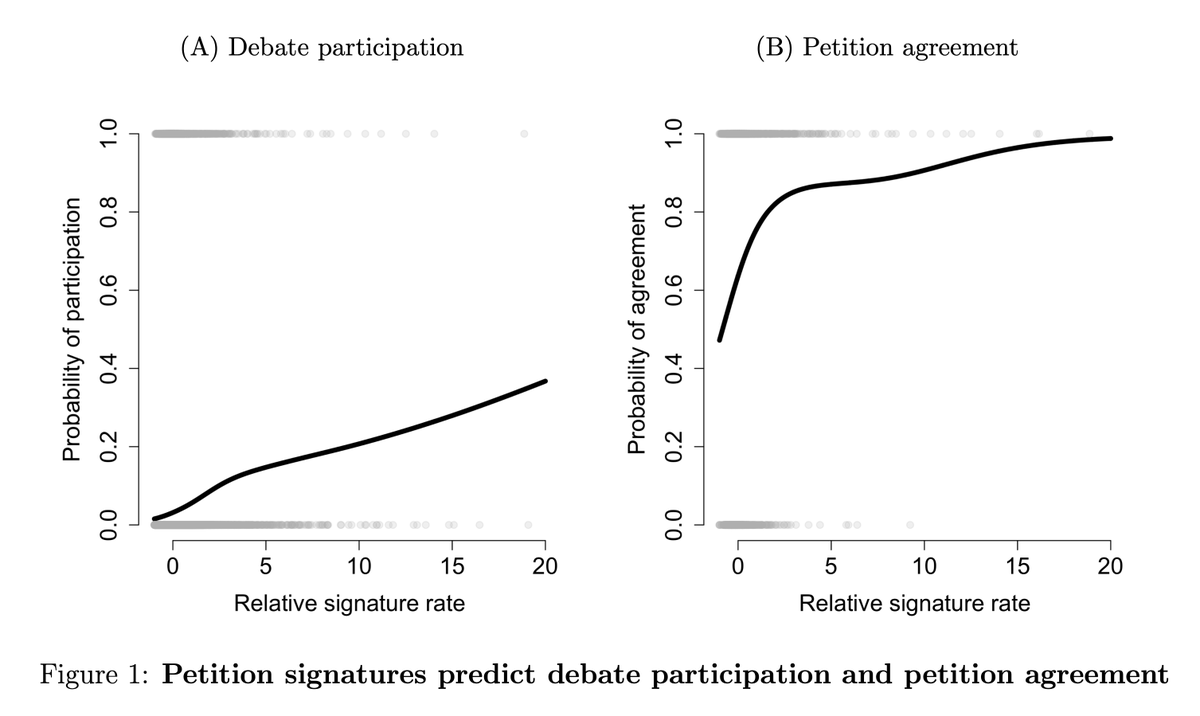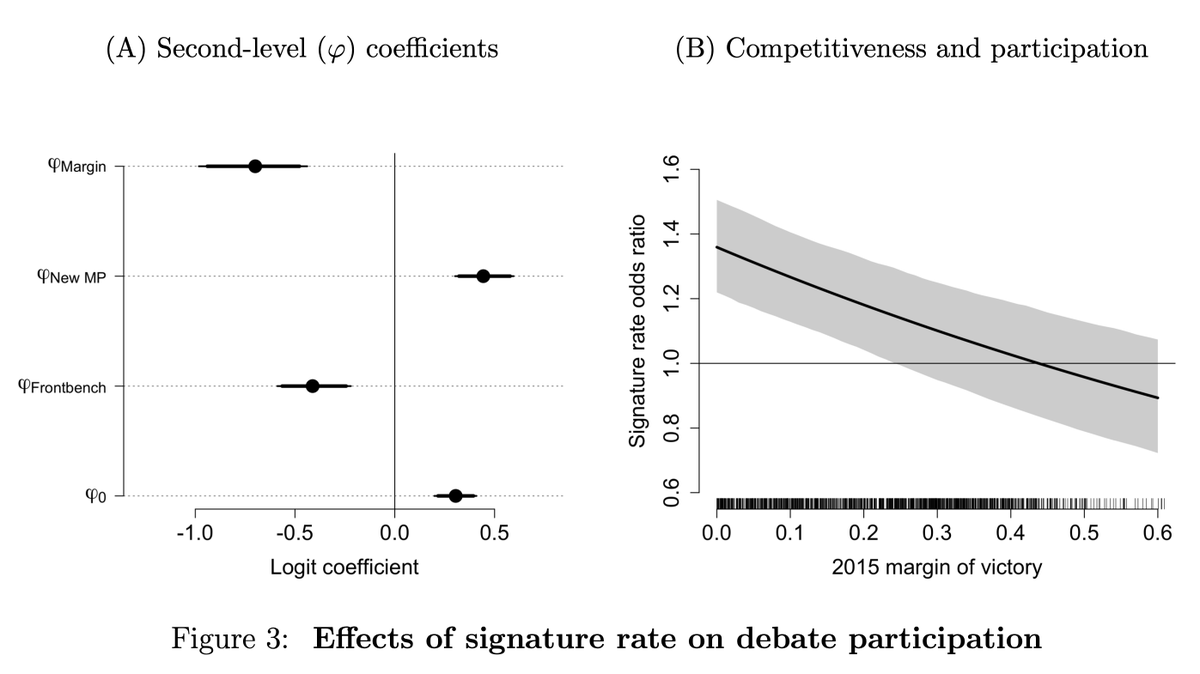Are MPs responsive to the priorities of their constituents? In this new LSQ paper, I use data from the UK e-petition system to show that MPs are more likely to advocate for an issue in parliament when local support for a related petition is strong. https://onlinelibrary.wiley.com/doi/full/10.1111/lsq.12291">https://onlinelibrary.wiley.com/doi/full/...
UK e-petitions are formally integrated with the legislative process: any petition with over 100,000 signatures gets discussed in parliament. You may recognise some of the petitions that have been debated in parliament recent years.
(Yes, the horse one is real.)
The number of signatories to each petition is also available at the constituency level. This means that MPs can see how strong support for the petition is amongst their own constituents.
A helpful feature of petition debates that they allow us to link measures of constituent demand (e-petition signatures) to MP actions in parliament. If MPs are responsive to constituents, this should be reflected in their behaviour in these debates.
I find that there is a strong positive relationship between the relative strength of support for a petition in a constituency, and the probability that an MP will a) speak in a debate about the petition, and b) express support for the aims of the petition.
You might think that this comes from some kind of topical confounding where MPs speak frequently about the issues that are important to their constituents, but that doesn& #39;t seem to be true.
Even compared with non-petition debates that are otherwise very similar in terms of topical content, MPs are more likely to speak in petition debates when many of their constituents have signed that specific petition.
These effects vary by MP-type. Petition signatures matter more for newly-elected MPs (who need to impress their constituents), and less for MPs in safe seats (who do not). Petition support also fails to predict debate behaviour for frontbench MPs.
Overall, the paper argues that innovations in e-democracy can help to strengthen representational ties between citizens and politicians, particularly when online systems are formally integrated into the broader political process, as in the UK.
In other words, those e-petitions you see floating around? They are not *totally* pointless.
p.s. I bet this is the only political science paper you read this year that contains the phrase "Puppy Smuggling". https://onlinelibrary.wiley.com/doi/full/10.1111/lsq.12291">https://onlinelibrary.wiley.com/doi/full/...

 Read on Twitter
Read on Twitter